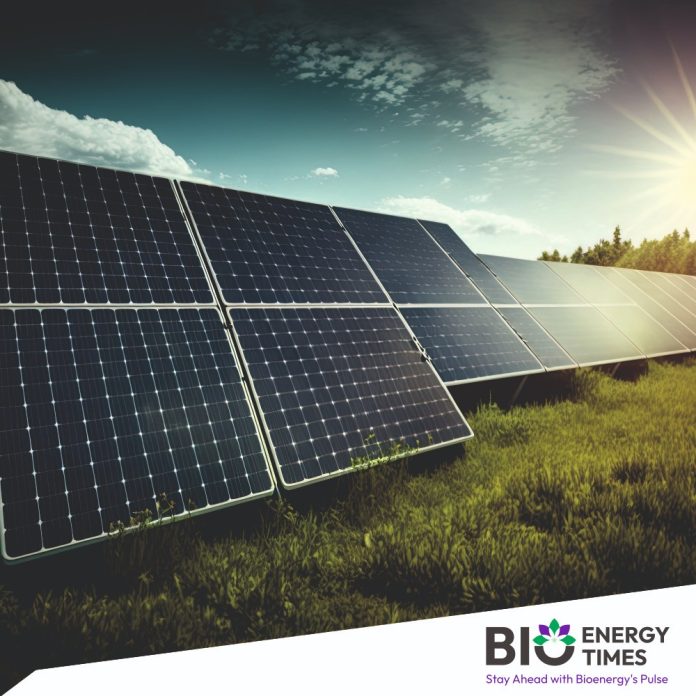A Memorandum of Understanding (MoU) was signed between Yashika Energy Systems, Next2Sun Germany, and Wattkraft India during the recently concluded RE-INVEST 2024, which aims to drive a transformative shift in renewable energy.
Gujarat hosted the 4th RE-INVEST Global Renewable Energy Meet and Expo (RE-INVEST) this week, organized by the Ministry of New and Renewable Energy (MNRE).
This partnership introduces innovative vertical solar technology that not only generates clean energy but also aims to revolutionize agriculture by allowing ongoing farming on the same land.
The dual-use strategy is expected to enhance India’s agrarian economy while making significant progress toward energy independence and climate action.
“This partnership addresses the increasing concerns about land use in conventional solar installations, which often take away valuable agricultural land. By deploying Next2Sun’s innovative vertical bifacial Agri-PV systems, we can utilize the land for both farming and renewable energy generation,” stated Yash Kishorkumar Gupta of Yashika Energy Systems.
“With the backing of governments and agricultural organizations in both India and Germany, our objective is to initiate pilot projects throughout India and scale this sustainable technology for widespread adoption,” Gupta added.
This initiative is timely, as India looks for innovative solutions to meet its rising energy demands without compromising its agricultural capabilities.
Next2Sun’s vertical bifacial solar technology addresses a major challenge posed by traditional solar farms, which often require large areas of land that could otherwise be used for agriculture.
This unique method allows solar panels to be installed vertically, generating energy from both sides while enabling farmers to grow crops underneath.
The pilot projects, ranging from 100 kWp to 500 kWp, are intended to demonstrate the effectiveness of vertical bifacial solar technology across various regions in India.
The MoU signing was attended by several notable dignitaries, including Sascha Krause-Tunker, CFO of Next2Sun AG, Svenja Schulze, the German Federal Minister for Economic Cooperation and Development, and Pralhad Joshi, India’s Minister of New and Renewable Energy.
“With the support of both governments and the agricultural community, we believe these projects will establish a new standard for sustainable development in India. We hope this will motivate others to adopt similar solutions and reshape our approach to land use and energy production,” emphasized Sascha Krause-Tunker, highlighting the broad impact of the partnership.
At COP26 in 2021, India made an ambitious five-part “Panchamrit” pledge, which includes achieving 500 GW of non-fossil electricity capacity, sourcing half of all energy needs from renewables, and reducing emissions by 1 billion tonnes by 2030. Additionally, India aims to lower the emissions intensity of its GDP by 45% and commits to achieving net-zero emissions by 2070.
India currently meets a significant portion of its energy requirements through fossil fuels, and various renewable energy sources are viewed as crucial for reducing reliance on conventional power sources.
To read more about Biomass Industry News, continue reading BioEnergyTimes.com















